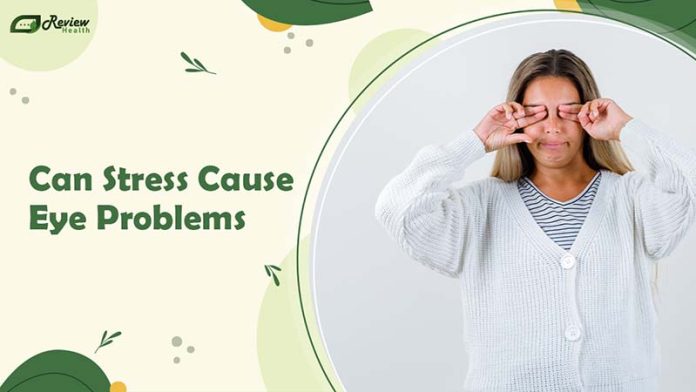Review Health reveals the question: Can stress cause eye problems? It’s not just your mood that’s affected — stress hormones can disrupt blood flow to your eyes and cause inflammation. This can lead to many vision problems, including dry eyes and blurred vision.
Recent studies highlight a worrying link between stress, poor mental health and potential vision loss. For example, in India, 74% of people said they felt stress and anxiety affecting 88% of the population. With numbers this high, it becomes even more important to understand how stress can affect your eyes.
This article from Review Health dives into the ways stress can affect your vision and offers practical tips for protecting your eyesight.
Can Stress Cause Eye Problems?
When you feel stressed, worried, or scared, your body’s fight-or-flight response activates, preparing you to handle potential dangers. This response influences not just your heart rate and breathing but also your eyes and visual system, potentially leading to eye strain and headaches.
Various studies and clinical trials have shown that stress can increase the risk of vision loss from eye diseases such as glaucoma, optic neuropathy, diabetic retinopathy, and age-related macular degeneration.
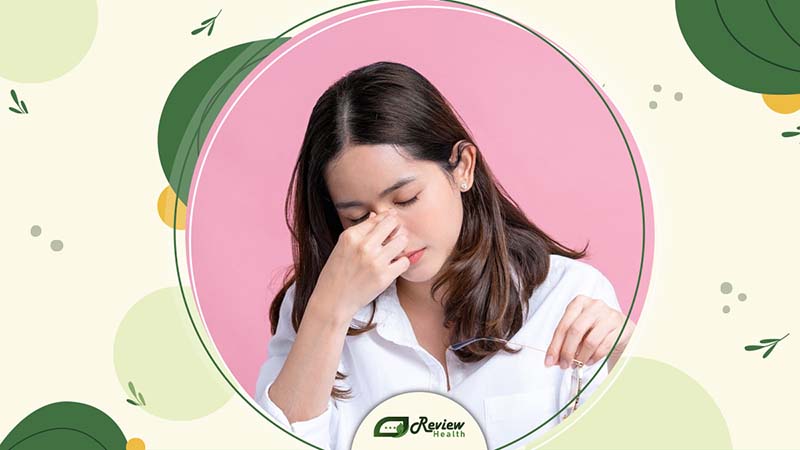
Notes: It’s crucial to manage stress effectively not only for mental well-being but also to safeguard your vision. Regular eye check-ups are essential, especially if you’re prone to stress or have a history of eye issues. Early detection can prevent potential complications.
Symptoms of Eye Strain and Dry Eyes from Stress
If you start experiencing sudden or gradual pain in one or both eyes, it might be related to stress. The pain can last just a moment, several seconds, or continue for minutes or even hours. In some cases, a dull pain or ache in the eyes can linger for days before it finally goes away.
Additionally, you might notice redness in one or both eyes along with the pain, though redness may not always accompany the pain. Pain in the eyes can also spread to the muscles that move your eyes, causing discomfort when you try to focus or move your eyes in a specific direction. This is often a sign of eye strain.
It’s important to recognize that these symptoms can vary from person to person – they might affect only one eye, switch from one eye to the other, alternate between eyes, or occur in both eyes at the same time.
See more: Dry Eye Syndrome Treatments: Quick Relief Tips
Preventive Measures to Safeguard Your Eyesight
To mitigate the impact of stress on your vision, consider implementing the following preventive measures:
- Practice Relaxation Techniques: Engage in activities such as yoga, meditation, or deep breathing exercises to soothe your mind and alleviate stress.
- Regular Exercise: Incorporate physical activity into your routine as it can help lower stress levels and enhance blood circulation to your eyes.
-

Regular Exercise: Incorporate physical activity into your routine - Take Breaks from Screens: Make it a habit to take frequent breaks from prolonged screen time, whether it’s from computers or mobile devices, to reduce eye strain and dryness.
-

Make it a habit to take frequent breaks from prolonged screen time - Wear Protective Eyewear: Shield your eyes from environmental factors like dust, harmful UV rays, and pollution by wearing sunglasses and other protective eyewear when outdoors.
-

Shield your eyes from environmental factors like dust, harmful UV rays - Maintain a Healthy Diet: Consume foods rich in essential nutrients such as vitamins A, C, and E, as well as omega-3 fatty acids, to promote optimal eye health.
- Regular Eye Exams: Schedule routine eye examinations to ensure early detection of any potential eye problems and to prevent vision loss.
-
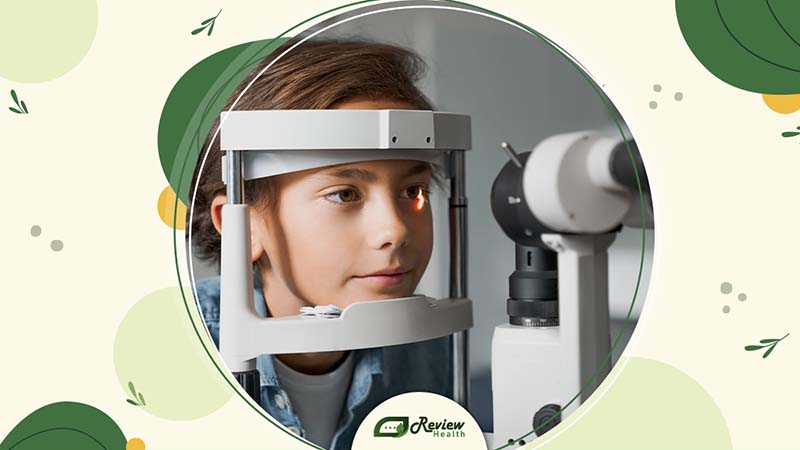
Schedule routine eye examinations to ensure early detection of any potential eye problems and to prevent vision loss.
By incorporating these practices into your daily life, you can effectively safeguard your eyes from the adverse effects of stress and maintain good eye health in the long run.
Effective Stress Reduction Techniques
If you’re dealing with stress or anxiety and notice frequent changes in your eyes, it’s wise to schedule a comprehensive eye examination with your ophthalmologist. They can provide relief for uncomfortable eye symptoms and address any underlying conditions.
While there are numerous stress reduction tips available online, it’s best to focus on methods backed by scientific evidence:
- Practice Deep Breathing: Incorporate deep breathing exercises into your daily routine to promote relaxation and alleviate stress.
-
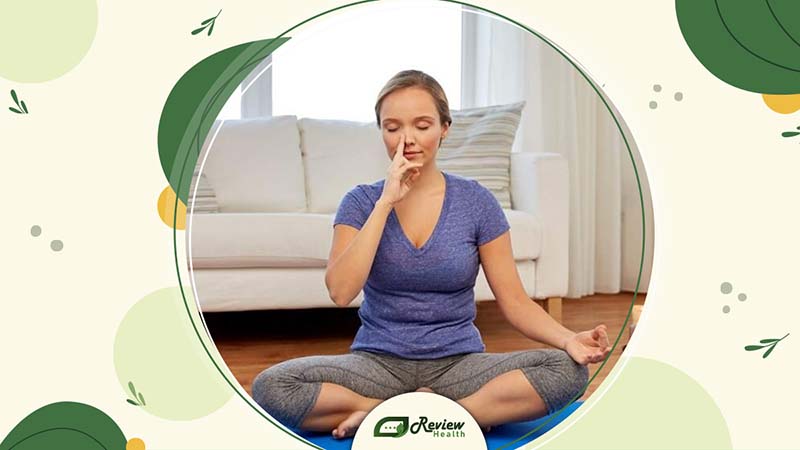
Incorporate deep breathing exercises into your daily routine to promote relaxation and alleviate stres - Exercise regularly: Engage in regular physical activity as it can help reduce stress levels and contribute to overall well-being, including eye health.
- Practice Mindfulness (Guided Meditation): Explore mindfulness practices such as guided meditation to cultivate a sense of calm and clarity amidst life’s challenges.
- Limit Time on Social Media: Minimize your exposure to social media platforms, as excessive usage can exacerbate stress and anxiety levels.
- Connect With Friends and Family: Foster meaningful connections with loved ones, as social support can be instrumental in managing stress and promoting mental well-being.
- Seek Professional Support: If stress begins to interfere with your daily functioning or relationships, don’t hesitate to reach out to your primary care physician or a mental health specialist for guidance and support.
By incorporating these evidence-based stress reduction techniques into your lifestyle, you can effectively manage stress and safeguard your eye health in the process.
Relaxation Tips for Your Eyes
Here are some effective relaxation techniques to alleviate eye strain and promote overall eye health:
Blink Your Eyes More Often: When you’re watching TV or using a computer, you might not blink as much as usual. This can dry out your eyes, leading to headaches and blurry vision. Try to blink more often to keep your eyes moist and help your brain process what you’re seeing better.
Palm for Relaxed Vision: This technique involves cupping your hands over your eyes to create gentle pressure. Close your eyes and focus on the darkness while maintaining a sense of distance. Hold this position until any residual light fades to black. This exercise helps reset your vision, moisturizes your eyes, and facilitates relaxation. Aim to do this for at least 30 seconds to alleviate eye stress.
Trace an Eight: Visualize a large figure-eight about 10 feet away from you, then rotate it horizontally. Slowly trace the figure-eight with your eyes, first clockwise and then counterclockwise. This exercise enhances the flexibility of your eye muscles and promotes clear vision. Consistency is key for optimal results.
Roll Your Eyes: Shift your gaze from right to left and vice versa, then move your eyes in different directions-up, down, left, and right. You can also visualize geometric shapes with your eyes. Repeat these movements five to ten times to relax your eye muscles effectively.

Follow the 20-20-20 Rule: To combat digital eye strain, adhere to the 20-20-20 rule: every 20 minutes, take a 20-second break to focus on an object at least 20 feet away from you. This practice prevents eye fatigue and potential long-term eye damage.
Focus on Objects Near and Far: This exercise helps you keep your eyes active and your vision sharp, which is important if you spend a lot of time wearing glasses. Here’s how to do it:
- Remove Your Glasses: Start by taking off your glasses to ensure your eyes work without any aid.
- Thumb Close-Up: Hold one thumb about an inch from your face.
- Thumb Farther Away: Extend your other arm fully and hold your other thumb at arm’s length.
- Align Your Focus: Make sure both thumbs and the next two focus points are roughly in a straight line. This helps your eyes shift focus smoothly.
- Room Focus: Next, find an object across the room and focus on it.
- Distant Focus: Finally, look at something far away, like a tree across the street.
- Shift Focus: Spend about two seconds on each focus point, starting with the closest (your near thumb) and moving to the farthest (the distant object). Try to see each object as clearly as possible.
Incorporate these relaxation techniques into your daily routine to alleviate eye strain and promote optimal eye health. Remember to take regular breaks from screens and prioritize the well-being of your eyes.
Effective Ways To Reduce Stress For Eye Health at Home
To maintain healthy eyes and counteract the effects of stress, consider implementing these home eye care tips:
- Avoid rubbing your eyes: Resist the urge to rub your eyes, even when they feel itchy or irritated. Rubbing can introduce harmful bacteria and particles from your hands into your eyes, potentially causing infections. Moreover, frequent rubbing can lead to dilation of blood vessels, resulting in dark circles and puffiness around the eyes.
-
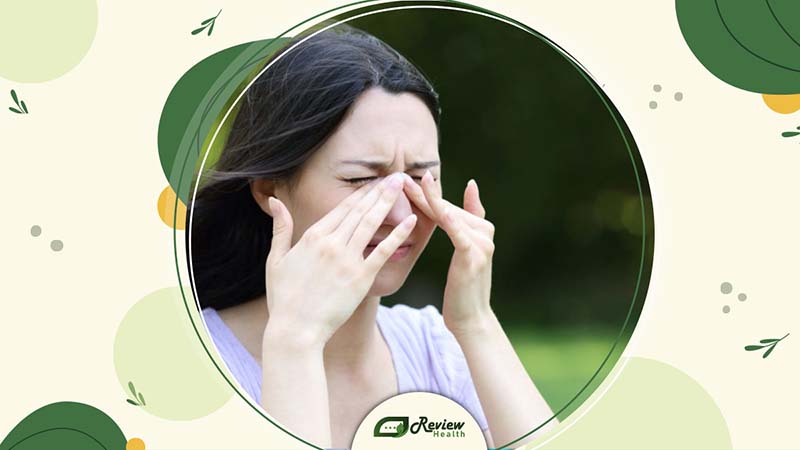
Resist the urge to rub your eyes, even when they feel itchy or irritated - Keep a balanced diet: Consuming a diet rich in fruits and vegetables can contribute to eye health by providing essential nutrients. These nutrients help protect against eye diseases such as cataracts and macular degeneration, promoting overall eye wellness.
- Get enough sleep: Adequate sleep is vital for maintaining optimal eye health. Insufficient sleep can lead to dry, red, and swollen eyes, along with the development of dark circles. Additionally, lack of sleep may cause eye strain, fatigue, and increase the risk of certain eye conditions.
-

Adequate sleep is vital for maintaining optimal eye health - Keep your surroundings clean: To protect your eyes from irritants and allergens, it’s important to keep your environment tidy. Dust, dirt, and other particles floating in the air can irritate your eyes and cause dryness when they come into contact with them. Allergens like mold, pollen, and pet dander can also lead to eye problems. By cleaning regularly, you can reduce your exposure to these irritants and keep your eyes more comfortable.
- Practice frequent handwashing: Washing your hands often is crucial for keeping your eyes healthy. Throughout the day, your hands pick up various contaminants. If you touch your eyes without washing your hands, you might transfer these particles and cause infections. Make sure to wash your hands regularly, especially before touching your eyes or handling makeup.
Incorporating these simple yet effective home eye care practices into your daily routine can help mitigate stress-related eye issues and maintain optimal eye health. Remember to prioritize regular eye check-ups and seek professional advice if you experience persistent eye discomfort or symptoms.
When to See an Eye Doctor About Stress and Vision
If you’re concerned about the impact of stress on your vision, it’s crucial to communicate with your healthcare provider. Consider seeking medical evaluation and treatment for stress-related vision issues if you encounter any of the following symptoms:
- Severe eye pain or discomfort: If you experience intense or persistent eye pain that is interfering with your daily activities, it’s advisable to seek prompt medical attention.
- Persistent dry eyes: Chronic dryness in the eyes can be a sign of underlying issues and may require professional assessment and management.
- Blurred vision: Sudden or persistent blurring of vision could indicate various eye conditions that necessitate evaluation by an eye specialist.
- Double vision: Seeing double images or overlapping vision warrants immediate medical attention, as it could indicate serious underlying problems.
- Sensitivity to light: Increased sensitivity to light, especially when accompanied by other symptoms, may signify underlying eye conditions that require medical intervention.
- Redness or swelling in the eye: Persistent redness, swelling, or irritation in the eye should be evaluated by an eye care professional to rule out potential infections or other issues.
If you experience any of these symptoms, don’t hesitate to visit an eye hospital or seek assistance from an eye care specialist. Timely intervention can help address underlying concerns and prevent potential complications.
Conclusion
Stress can indeed impact your vision, potentially causing conditions like dryness, strain, and blurry sight. It’s essential to actively manage stress and adopt protective measures for your eyesight. Integrate calming activities, consistent physical exercise, and frequent screen breaks into your lifestyle to minimize stress’s adverse effects on your eyes. Maintaining eye health is also key, which involves wearing the right eyewear, following a nutrient-rich diet, and scheduling regular eye examinations.
Should you notice any issues with your vision, seeking prompt care from a medical professional is vital. Early treatment can resolve issues before they worsen, preserving your eye health for the future.
Caring for your eyes not only supports your overall well-being but also enhances your quality of life. Visit Review Health for more tips and information on safeguarding your vision against the impacts of stress.

